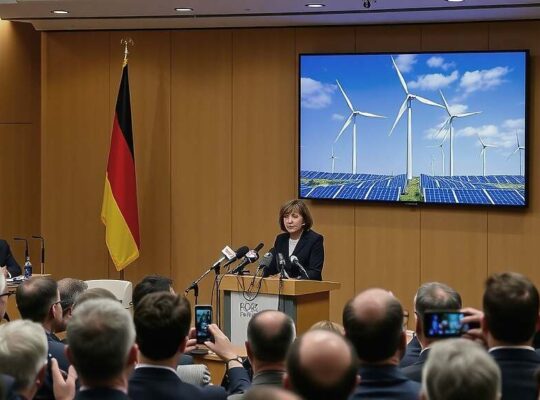Consumer mobility in Germany’s energy markets is surging, potentially exceeding record levels seen in 2024, according to data released by the Federal Network Agency (Bundesnetzagentur). Preliminary figures indicate that over 3.7 million households actively switched electricity providers in the first half of 2025 alone, a trend suggesting a broader consumer dissatisfaction with incumbent suppliers and a vigorous search for more favorable pricing.
The record for electricity provider changes was set in 2024, with 7.06 million households making the switch. This already marked a considerable increase from the 6 million recorded in 2023. The agency’s spokesperson highlighted that consumers abandoning basic supply contracts (“Grundversorgung”) can frequently save hundreds of euros annually, a significant motivator driving this increased mobility.
The gas market mirrors this pattern, having also set a record in 2024 with 2.3 million supplier changes. The Bundesnetzagentur anticipates a continuation of this trend, projecting approximately 1.1 million gas supplier switches in the first half of 2025 – a figure consistent with the previous year’s peak.
While the agency frames this consumer behavior as a positive indicator of increased competition and progress towards Germany’s energy transition, critics argue that the persistent churn reflects systemic issues within the energy sector. The necessity for consumers to actively seek better deals, repeatedly switching providers, suggests a lack of transparency and potentially exploitative pricing practices by some established providers. The reliance on consumer switching to enforce competitive pressure raises questions about the effectiveness of regulatory oversight and the underlying sustainability of such a dynamic. Furthermore, the administrative burden and potential environmental impact of frequent contract changes, while seemingly minor on an individual level, collectively contribute to broader concerns about the efficiency of Germany’s energy system. The continued high rates of switching warrant closer examination of the incentives driving these behaviors and whether more fundamental reforms are required to ensure a truly competitive and consumer-friendly energy market.












